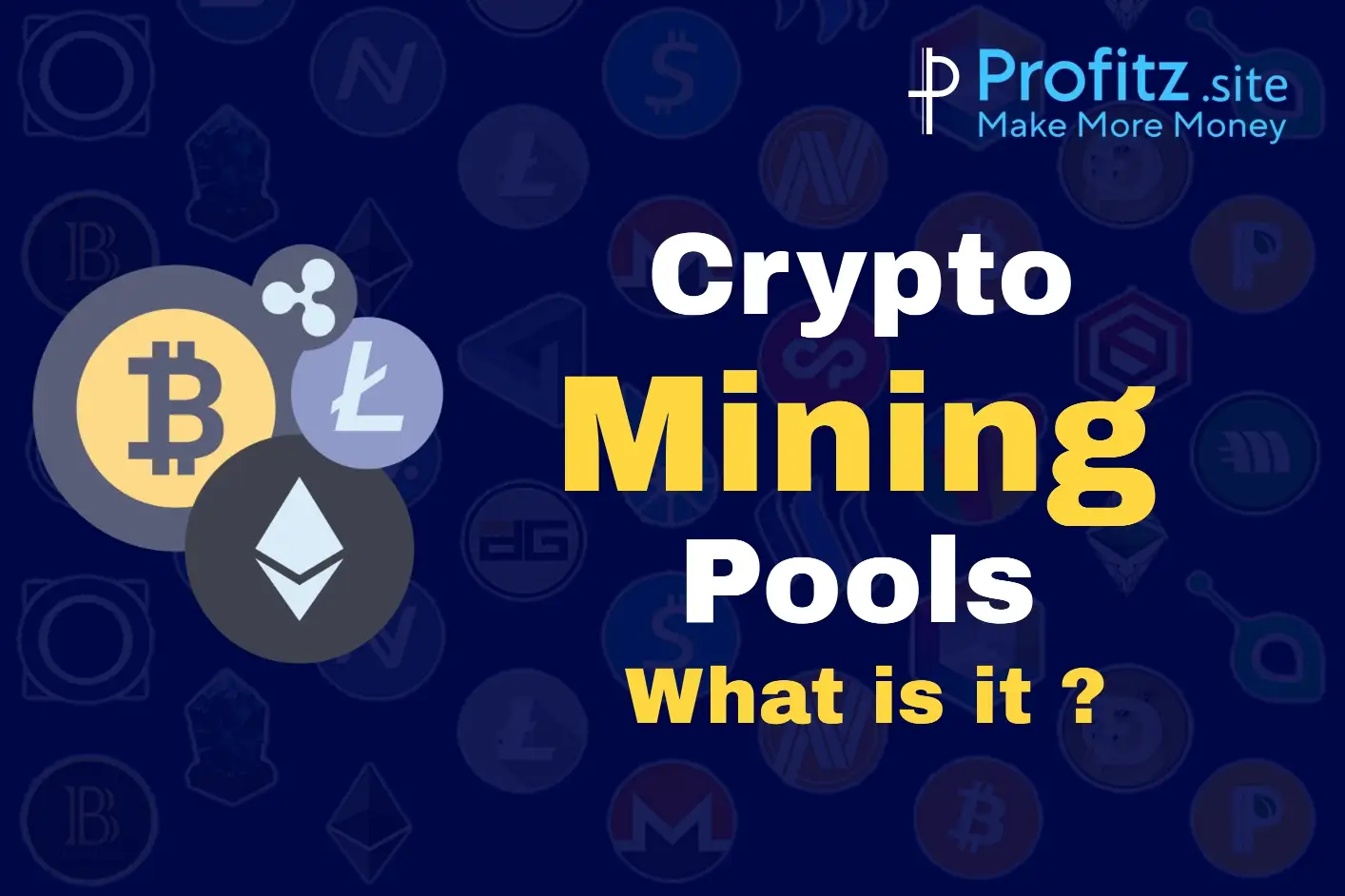Crypto mining pool play a crucial role in the world of cryptocurrency mining, providing a collaborative and efficient way for miners to combine their computational resources in order to increase their chances of successfully mining blocks and earning rewards. Here’s a detailed overview of crypto mining pool:
Introduction to Mining Pools
– Cryptocurrency mining involves solving complex mathematical problems to validate transactions and add them to the blockchain.
– Mining pools were introduced to address the increasing difficulty of mining and the need for a more consistent income stream for individual miners.
How Mining Pools Work
– Miners in a pool contribute their computational power, combining their hash rates to increase the pool’s overall hashing power.
– The mining pool coordinator (pool operator) distributes the computational workload, and miners work on different parts of the problem simultaneously.
– When a miner successfully solves a block, the reward is distributed among all participants based on their contributed computing power.
Advantages of Mining Pools
– Steady Income: Mining pools provide a more consistent and predictable income for miners compared to solo mining, where rewards can be sporadic.
– Reduced Variability: The collective hash power of the pool reduces the likelihood of long periods without rewards, making income more stable.
– Lower Barriers to Entry: Mining pools allow smaller miners to participate in the mining process without the need for massive computational resources.
Popular Mining Algorithms
– Mining pools support various algorithms depending on the cryptocurrency being mined, such as Proof-of-Work (PoW) algorithms like SHA-256 for Bitcoin or Ethash for Ethereum.
Types of Mining Pools
– Pay-Per-Share (PPS): Miners receive a fixed reward for each share they contribute, regardless of whether the pool successfully mines a block.
– Proportional: Miners are rewarded based on the proportion of the total computational power they contributed to finding a block.
– PPLNS (Pay Per Last N Shares): Rewards are based on the number of shares a miner contributed in the last N rounds, discouraging pool hopping.
Joining a Mining Pool
– Miners typically need to create an account on the mining pool’s website, configure their mining software to connect to the pool’s server, and use a unique worker ID for identification.
– Miners get guides and support from Pools to get started.
Pool Fees
– Mining pools may charge fees, usually a percentage of the miner’s earnings.
– This is to cover operational costs and support the pool’s development.
Security Considerations
– Miners should choose reputable and secure mining pools to avoid potential scams or fraudulent activities.
– Some pools offer additional security features, such as two-factor authentication.
Changing Landscape
– The mining pool landscape evolves with changes in cryptocurrency algorithms, market dynamics, and technological advancements.
Challenges and Risks
– Mining pools concentrate mining power, raising concerns about centralization and potential manipulation of the network.
– Pool downtime or attacks on the pool can impact miners’ income.
Conclusion
Mining pools have become an integral part of the cryptocurrency ecosystem, enabling miners to collaborate and earn more predictable rewards. However, participants should carefully choose a reputable pool. Always stay informed about changes in the mining landscape to navigate potential challenges effectively.
Top 10 Crypto Mining Pools
Selecting a Crypto Mining Pool is important before starting your crypto mining journey. List of Top 10 crypto mining pools changes periodically based on variety of factors such as user experience, fees, credibility etc. We will update this list periodically if any change occurs. Here’s a list of Top 10 Crypto Mining Pools for your reference,
1.F2Pool
– F2Pool is one of the oldest and largest mining pools, offering support for a variety of cryptocurrencies.
– It has a user-friendly interface and supports multiple payment methods.
– F2Pool has a significant portion of the Bitcoin and Litecoin mining market.
2.Antpool
– Operated by Bitmain, one of the largest manufacturers of mining hardware.
– Antpool is known for its global presence and a variety of supported cryptocurrencies.
– Offers a range of payout methods, including PPS, PPLNS, and Solo.
3.Slush Pool
– One of the first Bitcoin mining pools, established in 2010.
– Slush Pool uses a score-based system with a focus on fairness.
– Allows users to set their difficulty level and supports a variety of payout methods.
4.BTC.com
– BTC.com is operated by Bitmain and is known for its transparency and user-friendly interface.
– It supports multiple cryptocurrencies, including Bitcoin and Bitcoin Cash.
– Offers PPS (Pay Per Share) and FPPS (Full Pay Per Share) payout methods.
5.ViaBTC
– ViaBTC is a global mining pool that supports various cryptocurrencies, including Bitcoin, Ethereum, and Litecoin.
– It offers a unique feature called “merged mining,” allowing miners to mine multiple cryptocurrencies simultaneously.
6.Poolin
– Poolin is a multi-currency mining pool that supports Bitcoin, Bitcoin Cash, Litecoin, and others.
– Known for its competitive fee structure and user-friendly interface.
– Offers various payment methods, including PPS, FPPS, and PPLNS.
7.Huobi Pool
– Operated by the Huobi cryptocurrency exchange.
– Supports multiple cryptocurrencies and provides a variety of payout methods.
– Known for its stability and reliability.
8.Ethermine
– Specifically for Ethereum and Ethereum Classic mining.
– Ethermine has a straightforward and easy-to-use interface.
– Offers PPLNS (Pay Per Last N Shares) payout method.
9.Dwarfpool
– A multi-currency mining pool that supports Ethereum, Monero, and Expanse.
– Known for its low fees and ease of use.
– Allows users to mine directly to an exchange wallet.
10.KanoPool
– KanoPool is a smaller but well-respected mining pool.
– Known for its transparency and community involvement.
– Operates on a PPLNS payout method.
Before joining any mining pool, it’s essential to consider factors such as fees, payout methods, reputation, and the specific cryptocurrencies supported. Additionally, always check for the latest information as the crypto mining landscape is dynamic, and pool rankings can change over time.
